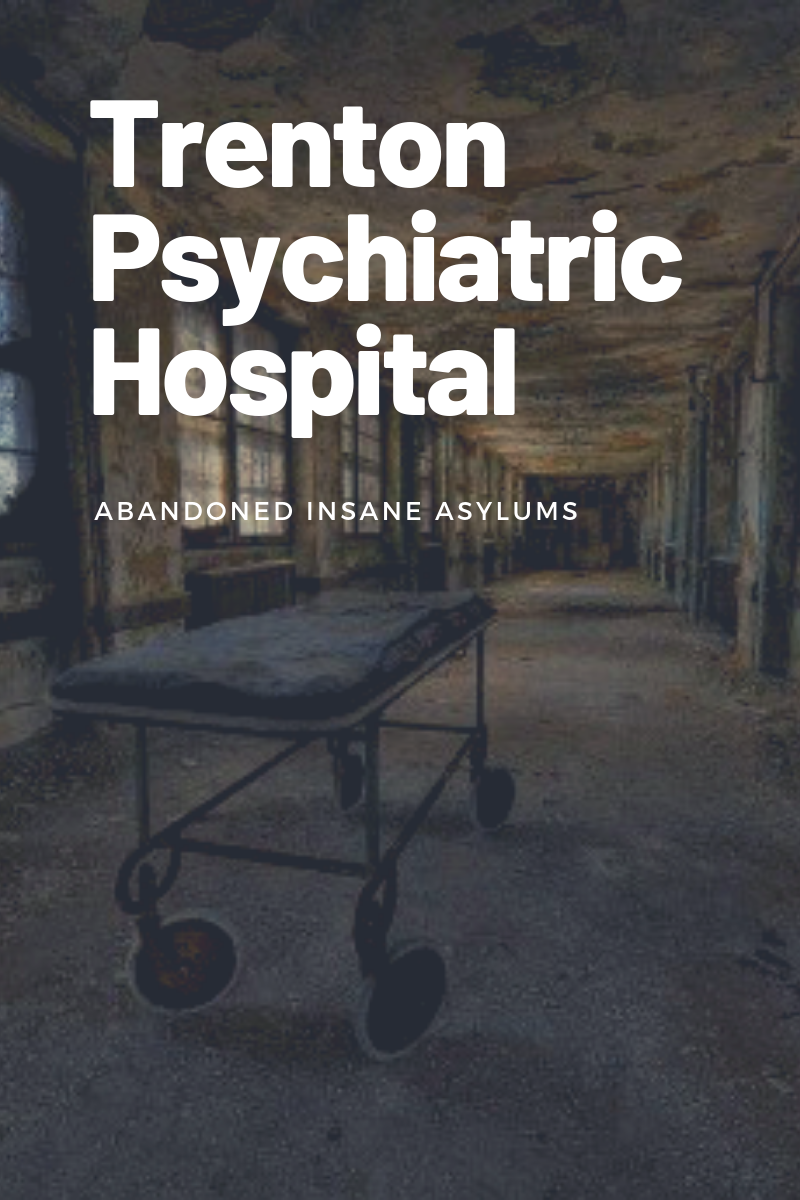'Schizophrenia' Recovery Rates: Psychiatry Isn't Working
Introduction
Psychiatry is a branch of medicine that specialises in the diagnosis and treatment of 'mental illness'. The central assumption underlying psychiatric practice in the developed countries is that severe mental health problems, (such as what is known as 'schizophrenia'), are primarily caused by biochemical disturbances in the brain and therefore require medication to achieve a therapeutic outcome. This approach to 'mental illness' has dominated psychiatric practice in the USA and much of Europe for over a century.
But how successful has western psychiatry been in improving the lives of patients suffering with severe mental health problems? To what degree have people in the richest countries of the world benefited from having easy access to both highly trained psychiatric professionals and state-of-the-art medications? Answers to these questions can be gleaned from three lines of inquiry: a comparison of 'schizophrenia' recovery rates between the developed countries and those in the 3rd world; an exploration of the degree of progress made in the treatment of 'schizophrenia' over the last 100 years; and a direct evaluation of the effectiveness of modern psychiatric treatment as compared to an alternative intervention that places much less emphasis on drugs and professional input. The evidence from each of these three areas will now be considered.

'Schizophrenia' recovery rates in developed and under-developed countries
'Schizophrenia' is the medical label given to a cluster of psychotic symptoms, typically some combination of auditory hallucinations (hearing voices that other people cannot hear), delusions (beliefs rigidly held without any objective evidence to support them) and thought disorder (where thoughts seem jumbled and confused). Affecting around 1% of the world’s population, 'schizophrenia' has great human and economic costs. Furthermore, the long-term prospects for most sufferers are purported to be poor with relapse and residual disability commonplace.
In 1969 the World Health Organisation (WHO) started a long-term scientific study to investigate recovery from 'schizophrenia' in 14 different cultures. The findings were astounding (1). Those people who suffered 'schizophrenia' in the poorer countries appeared to fare considerably better than those patients in the richer, developed countries. Subsequent research studies have confirmed these conclusions (2) (3).
The American journalist, Robert Whitaker, starkly summarised these findings in his book, “Mad in America” (4) (see Table 1). He highlighted how, five years after the initial measures were taken, almost 64% of 'schizophrenia'-sufferers in the poorer countries had fully recovered and were functioning well compared to only 18% of patients in developed countries. Whitaker proposed that the crucial reason for this marked discrepancy was the overuse of anti-psychotic medication in western cultures; “doctors in poor countries did not keep their mad patients on neuroleptics, while doctors in rich countries did.”
Table 1
% of patients functioning well/no symptoms at 5-year follow-up
| % of patients doing okay, although not fully recovered at 5 year follow-up
| % of patients remaining unwell, not recovered at 5-year follow-up
| |
|---|---|---|---|
Developed countries e.g. USA, London, Hong Kong
| 18
| 17
| 65
|
Under-developed countries e.g. India, Nigeria, Columbia
| 64
| 12
| 24
|
Adapted from "Mad in America" by Robert Whitaker
A more recent review of all the scientific evidence (5) reached the same conclusion. Despite poorly organised health-care systems and limited access to psychiatrists, low and medium income nations achieve better outcomes for ;schizophrenia'. As well as less reliance on medication, other suggested reasons for this advantage are that mentally ill people in poorer countries experience less stigma and benefit from more family support.
How much progress has been made in providing effective help for people tagged as suffering 'schizophrenia'?
Another way of evaluating the effectiveness of modern psychiatric practice is to compare its progress with the achievements in other branches of medicine. Advances in medical science have realised huge benefits for people across the world. Vaccines for polio and meningitis have saved millions of lives; the introduction of the MMR vaccine in the United Kingdom in 1988 led to the incidence of measles falling from around 75,000 cases each year to less than 10,000 cases each year. The discovery of penicillin, the first anti-biotic, by Alexander Fleming in 1928 has enabled us to fight infections and has undoubtedly saved countless lives. Data from both the US Centre for Disease Control and the UK Office of National Statistics demonstrate that a person’s chance of surviving cancer has significantly improved during the period 1970 to 2000. Survival rates after a heart-attack have improved at a rate of about 1.5% per year since the 1960s.
So what comparable progress has psychiatry made in the treatment of mental health problems? Following over a century of research endeavour (much of it funded by the pharmaceutical industry), together with the privilege of routine access to medical expertise, what gains have been made in reducing the distress associated with 'schizophrenia' in western societies? The answer to these questions would seem to be “very little, if any”.
In the 18th and 19th centuries, when the asylums were run on moral grounds offering humane care for patients who had previously been bound in chains, discharge rates were in the region of 60 – 70%; when medical treatments were introduced, the discharge rates reduced (6).
Two comprehensive reviews provide further damning evidence for the ineffectiveness of psychiatry in the western world. An examination of 68 studies conducted on samples of patients in the USA and Europe found that the recovery rates for 'schizophrenia' had not improved since the start of the 20th century (7). A similarly negative conclusion was reached by Whitaker (4) who estimated that mental illness in the USA had increased six-fold between 1955 and 2003.
A more mixed picture was described by American psychiatrist, James Hegarty (8), who reported modest improvements in 'schizophrenia' recovery rates between the 1950s and early 1980s, but a worsening of outcomes in the subsequent decade. Hegarty proposed that recovery rates for mental illness may correspond to economic factors and improve during periods of low unemployment.
Consideration of these studies as a whole lead to the conclusion that over 100 years of intense modern psychiatric research and practice has failed to achieve any appreciable progress in the prevention or treatment of what psychiatry calls 'severe mental illness'.
Loren Mosher talks about the Soteria project
A comparison of the effectiveness of modern psychiatric treatment with an alternative approach
The most potent test of the effectiveness of any approach is to directly compare it with an alternative. Unfortunately, as traditional psychiatric practice (with its emphasis on medical treatments) has dominated the treatment of people with 'schizophrenia' since the end of the 19th century, it is very rare for a radically different approach to be implemented and evaluated to find out how it matches up. The exception has been the outstanding work of Loren Mosher.
Mosher once occupied the top position within the American Psychiatric Association (APA) but became increasingly disillusioned with his profession’s reliance on drug treatments. Following decades of deepening alienation from fellow psychiatrists, he resigned from the APA in 1998 stating in his resignation letter that “the major reason for this action is my belief that I am actually resigning from the American Psychopharmacological Society.”
Many years earlier, Mosher initiated a way of helping people with severe mental health problems that placed far less emphasis on the prescribing of anti-psychotic medication (9). His project, referred to as Soteria House, was based in an impoverished area of California and first opened in 1972. It accommodated six residents at a time, all recruited from the Emergency Rooms of local hospitals where they had presented with acute psychotic episodes (and would have therefore acquired the diagnosis of 'schizophrenia'). Soteria House was staffed by caring, supportive people who did not possess professional mental health qualifications and who tried to empathise with the residents and help them make sense of their psychotic experiences. Apart from emergencies, no drugs were used in the first six weeks of their stay.
Mosher rigorously evaluated this innovative approach in comparison to treatment as usual within the conventional psychiatric system (typically involving medication, admission to an acute psychiatric hospital and regular contact with mental health professionals). In the short-term Mosher found that both the Soteria and traditional patients achieved equal and significant improvement in their symptoms. At 2-year follow-up, 43% of Soteria patients had not received any psychiatric drugs and were still doing at least as well as those patients in the professional psychiatric system; if anything, there was evidence of modest superiority over those receiving conventional treatments.
Despite the reporting of further, similarly positive results, the Soteria project closed in 1983 largely as a result of lack of support from the psychiatric profession and the drug companies.
Conclusions
1. A 'schizophrenia'-sufferer in the under-developed world (e.g. Nigeria) has a better chance of recovery than a schizophrenia-sufferer in richer countries (e.g. USA).
2. In contrast to every other medical speciality, and despite over 100 years of intense psychiatric research, 'schizophrenia' recovery rates are no better today than they were at the beginning of the 20th century.
3. An approach based predominantly on respect and compassion is at least as effective in helping people receiving the diagnosis of 'schizophrenia' as traditional psychiatric practice with its emphasis on toxic drugs (as well, of course, as being much less expensive to deliver).
So there can only be one overarching conclusion: western psychiatry isn’t working!
References
(1) World Health Organisation (1973). Report of the International Pilot Study of Schizophrenia, Vol. 1. Geneva: World Health Organisation.
(2) Jablensky, A., Sartorius, N., Ernberg, G. et al (1992). Schizophrenia: manifestations, incidence and course in different cultures: a World Health Organization ten-country study.Psychological Medicine,Monograph Suppl.,20,1-97.)
(3) Harrison et al. (2001). Recovery from psychotic illness: a 15- and 25-year international follow-up study.British Journal of Psychiatry 178, 506 – 517.
(4) Whitaker, R. (2002). Mad in America: Bad Science, Bad Medicine, and the enduring mistreatment of the mentally ill.Basic Books: New York
(5) Isaac. M. et al. (2007)Schizophrenia outcome measures in the wider international community. British Journal of Psychiatry 91, 71 – 77.
(6) Bockoven, J.S. (1972). Moral Treatment in American Psychiatry. Springer Publishing.
(7) Warner, R (1985). Recovery from Schizophrenia: Psychiatry & Political Economy
(8) Hegarty J.D et al. (1994). One Hundred Years of Schizophrenia: a meta-analysis of the outcome literature. American Journal of Psychiatry, 151, 1409 – 1416.
(9) Mosher, L. (1978). Community Residential Treatment for Schizophrenia. Hospital and Community Psychiatry, 29, 715-723








